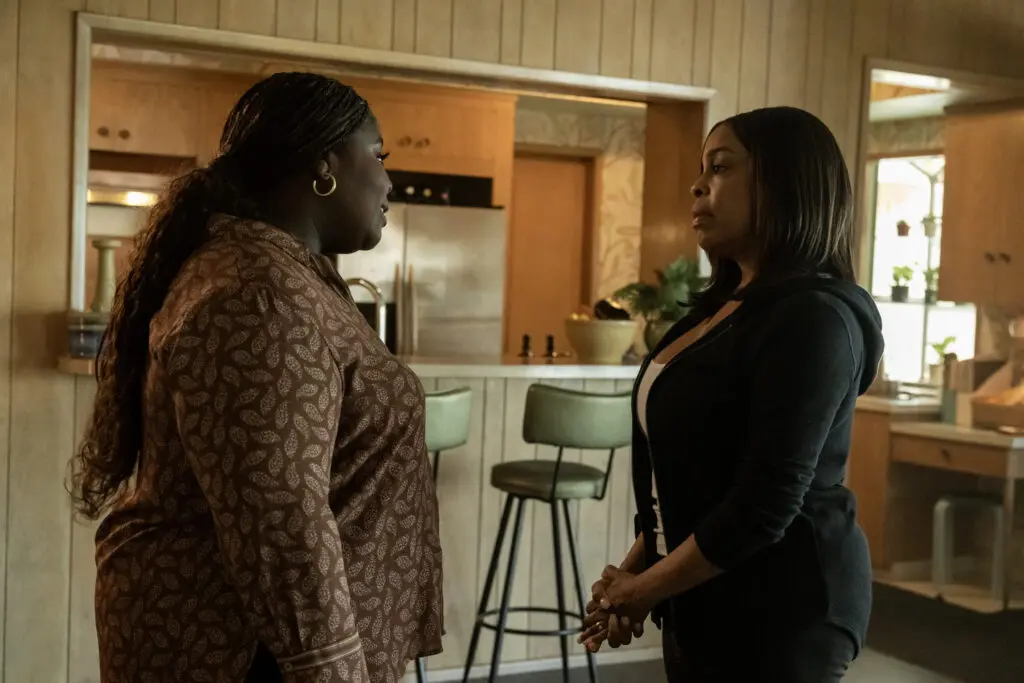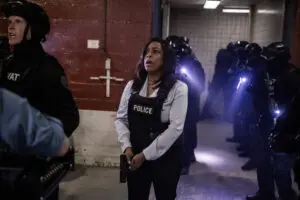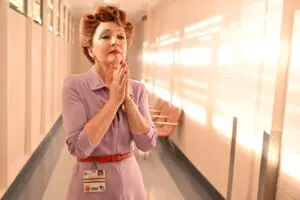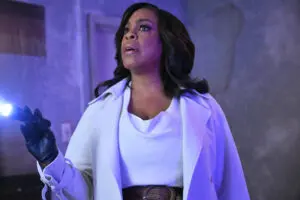Summary
Grotesquerie grapples with dreams and reality in Episodes 8 & 9, but what’s real and imagined remains frustratingly unclear as we head into the finale.
There were lots of big – nay, huge – questions coming out of the Big Twist™, chief among them how Grotesquerie was going to proceed in Episodes 8, 9, and 10. What would it be about? Could it still be a horror show? How would Lois’s dreams – which comprised the first six-and-a-bit episodes – interlock with her reality, freed from a coma but still trapped, on all sides, by people who hate her and wish she’d have stayed unconscious?
Lois’s means of navigating these questions comes through some unusual therapy with Doctor Witticomb (a guest-starring Santino Fontana), who doesn’t believe that Lois was in a coma at all but was instead trapped in a perpetual liminal dream state, halfway between sleep and waking, and that all of her imaginings – all together now – mean something. But what?
What Lois’s Dreams Mean
Well, Grotesquerie Episodes 8 & 9 are devoted to unpacking this. Take Megan, for instance. In reality, she’s a “holier-than-thou” Millennial Lois assumed was gunning for her job, so she cast her as a nun. Makes sense. But she also cast her as a possessed nun – remember all the speaking-in-tongues stuff during their kitchen fight? – because Megan is indeed possessed; she’s in an abusive relationship with a drunk named Justin.
Meanwhile, Lois imagined Marshall in a coma in her place. Why? Because she had lost control of their marriage; she had realized she could no longer love him after seeing him love Merritt less and less following her college weight gain (which he describes, at one point, as “biblical.”) And then there was the affair, of course.
Interestingly, Lois cast Redd as a nurse because she respected her for taking care of Marshall. In her newly awakened state, Lois has no ill will towards Redd; on the contrary, she feels for her now being stuck with Marshall full-time.
Father Charlie became Grotesquerie because he was actively campaigning to have Lois’s life support machines turned off. Megan became his accomplice because, between them, they were trying to take over her job and end her life.
Who else? Ed fulfilled a similar role in Lois’s dream as in her real life – he’s her AA sponsor. Her affair with him was just because “he was there”, and she was having difficulty bonding with Merritt.
Lois Is A “Chimera”
This is clearly an insane way to go about things, but as Lois herself acknowledges multiple times throughout these two episodes, she’s not an especially well-adjusted person. This is why she cast her own daughter in her dreams solely in the context of the weight gain that ruined her marriage.
It’s no accident that nobody likes Lois; it’s entirely because of things like this. The underlying idea is that Lois’s work – her constant exposure to corpses, serial killers, and people who have been manipulated, harmed, or exploited – has stripped away her humanity. Merritt herself makes this comparison. So, too, does Marshall, who describes Lois as a “chimera”, a creature from Greek mythology with a lion’s body, a goat’s head, and a snake tail that has since been co-opted in various contexts to mean anything comprised of disparate parts to form an unrecognizable whole.
Even Dr. Witticomb has a similar theory, believing that Grotesquerie, the imagined killer in her dream, was an outgrowth of Lois’s PTSD, the horrors of the world she has witnessed first-hand given a new, more specific form.
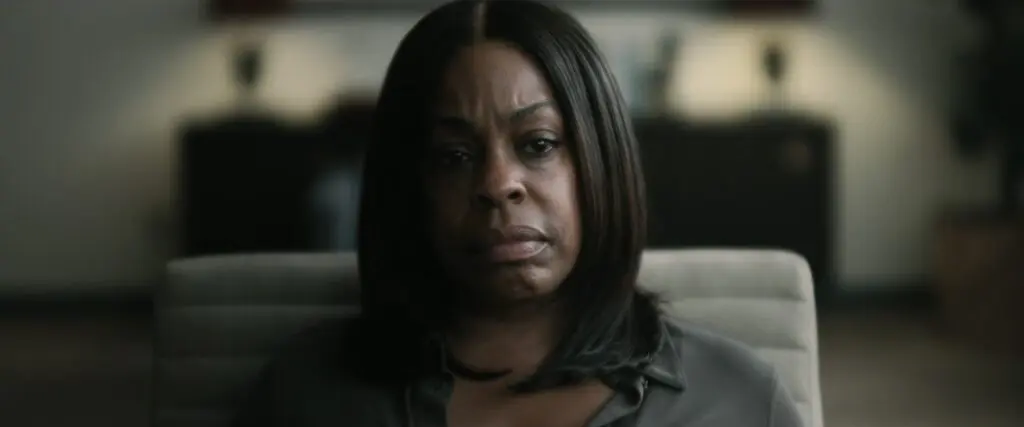
Niecy Nash as Lois Tryon in Grotesquerie
Lois Tryon, Prophetess
Witticomb has another theory, too. This explains why he and his colleague, Dr. Smythe, are so fascinated with Lois’s brain. They believe she’s a prophet.
The evidence for this is admittedly scant. Most of Lois’s dreams were embellishments of real cases she worked on or outgrowths of real anxieties and fears (such as the milking plant in Episode 6 being a very direct metaphor for her concern about the mistreatment of vulnerable women.) But one of them stands apart – the massacre of the Burnside family.
This was the case in Episode 1, with the minced-up father being fed to his family and the baby boiling in the pot. This has nothing to do with any of Lois’s case files. Witticomb believes it’s a prediction; something that’s going to happen in the future. And, just like that, Lois is called to a crime scene by a frantic Megan. It’s the Burnside house, familiar in every detail, including the pot bubbling away on the stove…
Parallels
The logical part of Lois’s brain assumes that the killer stole her therapy notes and recreated the crime scene from her recollections. But there’s just far too much weird stuff still going on for that to be satisfactory as an explanation.
For instance, Lois meets Megan at the same motel from that brilliant one-take sequence in Episode 5. What significance does that place hold for her? Lois explicitly panics about the possibility of still being in a coma, still dreaming, which naturally raises the possibility of a dream-within-a-dream for the audience. Can Ryan Murphy get away with that twice?
But would that explain why Justin, who turns up at the motel at the end of Grotesquerie Episode 9, quotes the same study as Dr. Witticomb? Does it explain how Lois is able to shoot him dead, blowing his brains out against the window? That seems pretty real to me, and the line between reality and symbolism is becoming all too blurry.
There’s clearly a lot for the finale to unpack, and it’ll be fascinating to see how Murphy goes about doing it.
RELATED:

